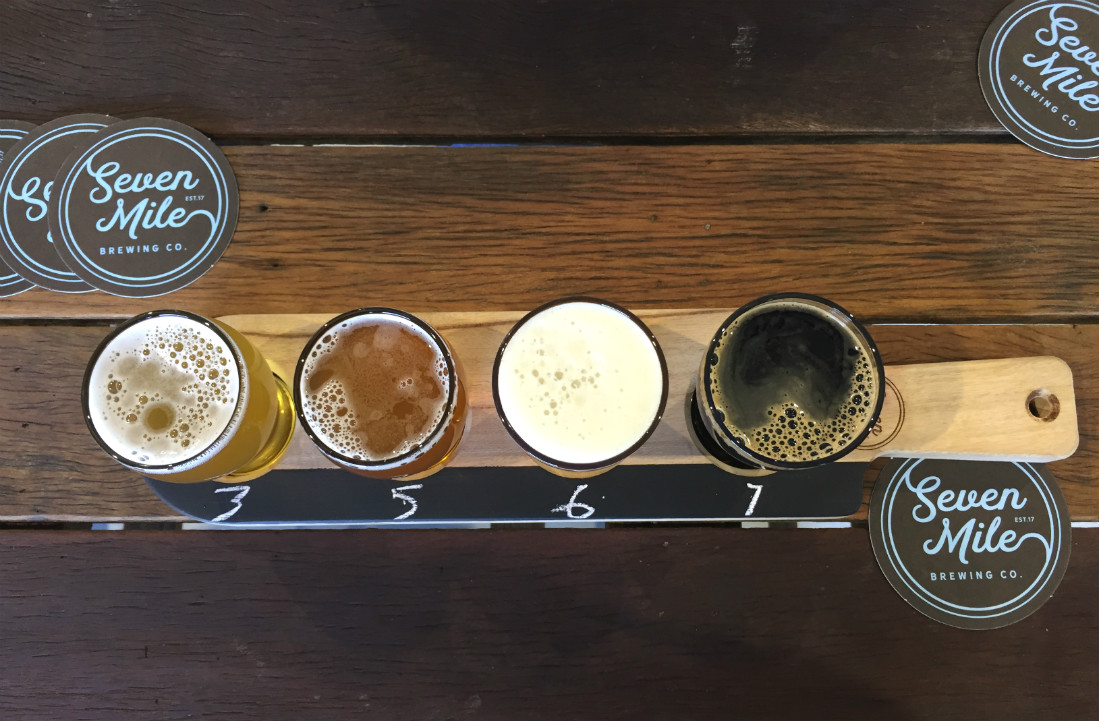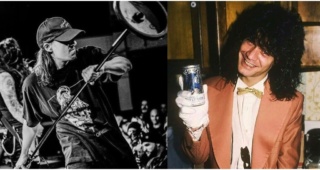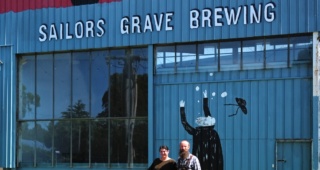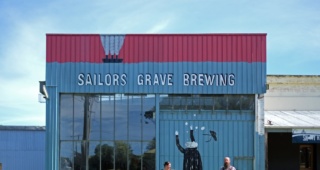Kneeling beside one of two brite tanks in his two-month-old Ballina brewery, Matt Wilson scoops foam from fresh glasses of Cali Cream, a feather-light 4.5% cream ale brewed with all Australian malts, hops, and yeast. Officially it’s the first beer Wilson ever brewed for Seven Mile Brewery Co, which he co-founded with his dad Lou, and officially it’s the beer he seems to enjoy brewing about as much as paying taxes. “It’s very much just ‘a beer,’” he says, tone dropping a half octave above apologetic. “Unfortunately, this will be my most popular beer around here.”
It tastes perfectly fine—not exciting by any means, yet balanced and crushable. There’s just enough flavor imparted from its mix of Galaxy, Ella, and Topaz hops, though not enough to completely spook local taste buds cultivated for generations by dumpster-fire lagers like Tooheys New and Hahn SuperDry. Still, I know what he means. For Wilson, Cali Cream is something of a devil in disguise as Seven Mile’s evangelist beer, the one most likely to score a tap at the old-school bowling clubs and pubs in places like Lismore, Lennox Head, and Ballina.
Along with the similarly accessible Summer Ale, it’s the beer that’s going to pay the bills, at least for a little while, and it’s the beer driving much of Seven Mile’s accelerated growth. When I meet the Wilsons in late July, a scant six weeks or so after the brewery’s public debut, five more 24-hectoliter fermenters and another 12-hectoliter brite tank are already on the way, along with a canning line. Most of that extra real estate will be dedicated to Cali Cream, Summer Ale, and American Pale, three of the four core beers in the brewery’s range. The initial plan was to launch with only three core beers, actually, but that plan was quickly tweaked to include the Cali.
“We sold like 80 percent of our trade through the cream when it was on tap those first few weeks,” Matt says. “In general we’re filling up a lot quicker than we thought we would. We were planning to brew once or twice a week, with half the tanks empty most of the time, and thought this would be like an eight-year plan. We keep going at this rate and we’ll probably do it in two.”
By “this rate,” Wilson means all the tanks are full and he’s already had five-day brew weeks.
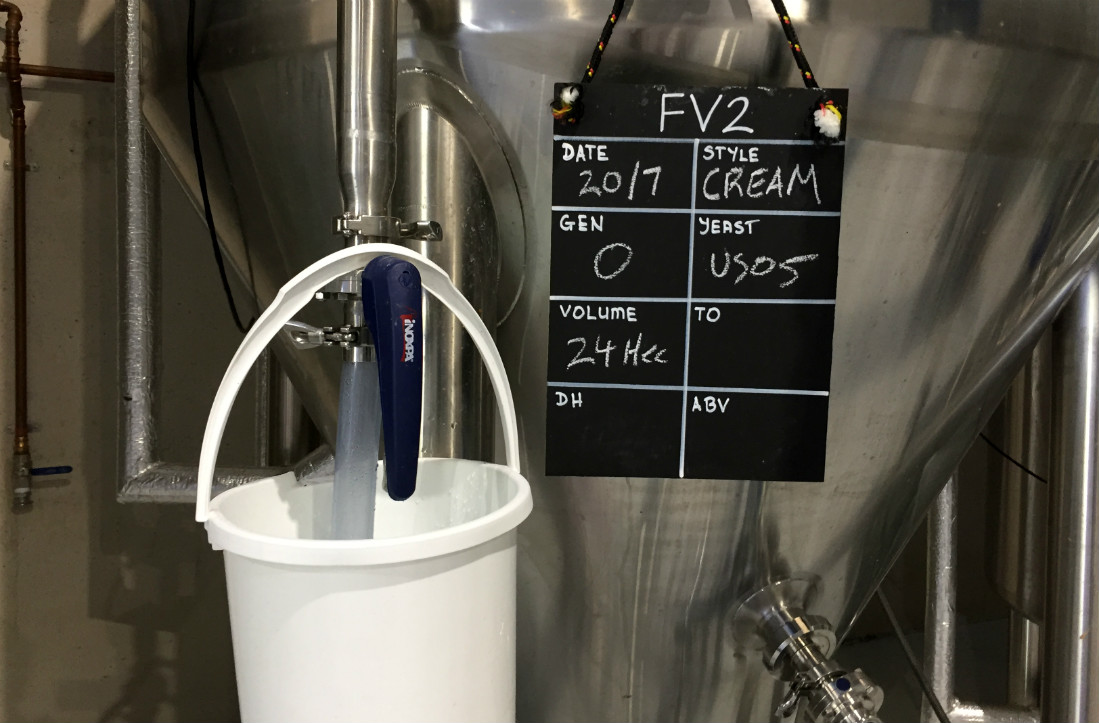
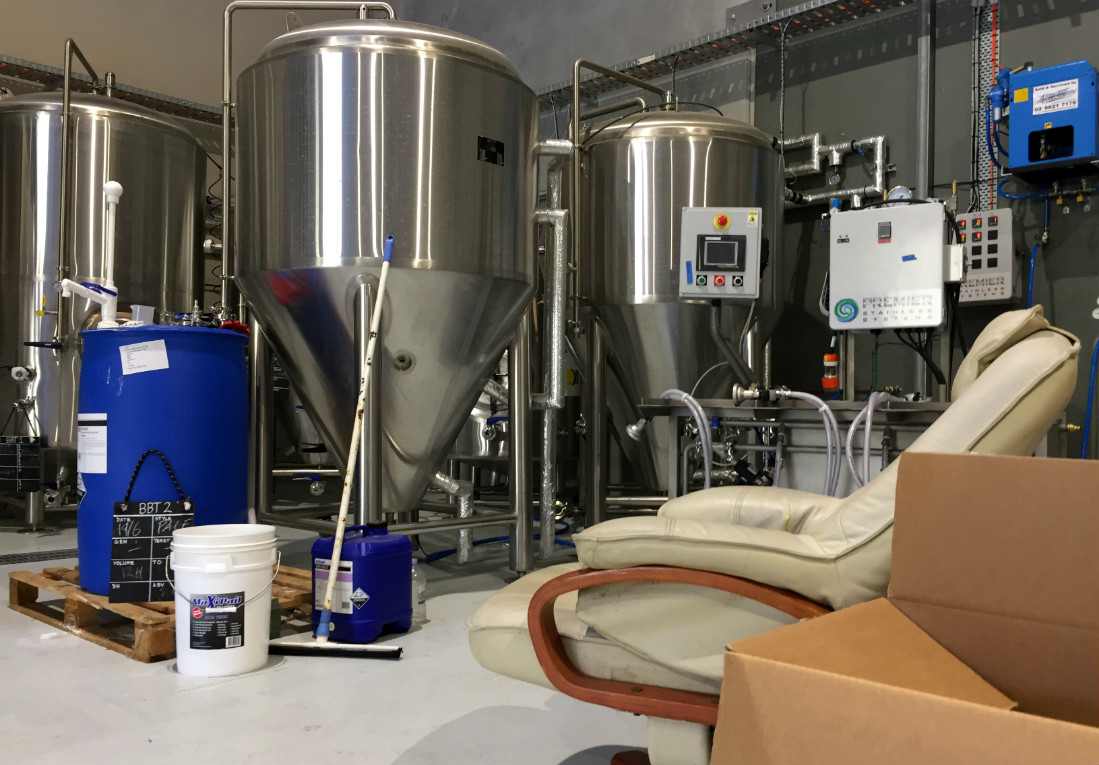
Sweet beer dreams are not made of summer and cream ales for an aspiring thirtysomething brewer like Matt Wilson, however. Seven Mile’s fourth core beer, the punchy, hop-forward West Coast IPA (7%), is Wilson’s favorite of the four and, of course, for now the slowest seller, which is a wee ironic since it’s one of the best IPAs on the continent, at least according to judges at the 2018 Australia Independent Beer Awards. Along with Sauce Brewing Co’s Extra – Hop Sauce and Willie the Boatman’s Crazy Ivan, Seven Mile’s signature IPA was one of only three to earn a gold medal in the India Pale Ale category. The awards were announced at BrewCon 2018 in late June, which if you’re not keeping score at home was just a few weeks after the brewery opened shop.
“I was probably more confident than Matt because he’s the brewer, so he’s a little critical of his own beers,” says Lou. “I thought it was a crackin’ beer and that it was up there. We were hoping for a medal, and gold is obviously exceptional.”
Lou spent most of his adult life as a public servant in the Australian government before taking an early retirement following a back injury. He is, to put it mildly, a straight shooter, which I can appreciate. Example: When I ask him how exactly he and Matt came to launch Seven Mile, he shrugs, looks me straight in the eyes, and as if I’d asked him what color the grass is outside says, “Well, he’s my son, so that’s an easy one.”
After a little more gentle prodding, Lou reveals a little bit more about Seven Mile’s genesis. “It just developed over a period. I’d retired, and we sort of half-jokingly talked about doing a brewpub sort of thing in Sydney a few years back, and then we started looking at doing something up here,” he says. “I’ve lived here for 26 years and Matt went to school up here when he was a teenager, so yeah… it just slowly developed from beer talk into something that grew a bit of legs.”
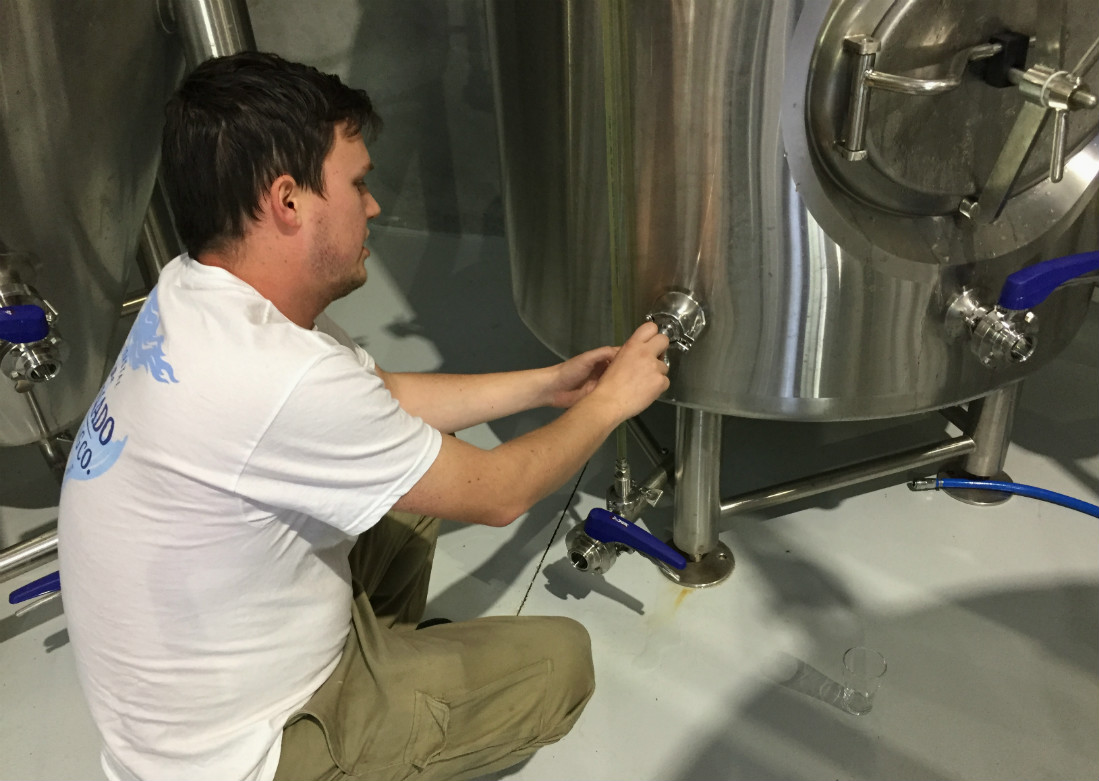
In his twenties, the younger Wilson worked in Sydney as a full-time tech journalist, but a growing interest in brewing compelled him to drop down to freelancing before dropping out of the profession all together. He started “hanging out” three or four days a week in Manly at 4 Pines Brewing Co, at the time a small six-month-old brewery (and now a widely distributed name brand owned by AB InBev). Eventually he landed an assistant brewer gig at Riverside Brewing Co in Parramatta, a western Sydney suburb, and was there for a little under two years before joining the brewing team at 4 Pines. He stayed for about four years, jumping ship eight or nine months before AB InBev swooped in.
4 Pines, Feral Brewing Co, Pirate Life, Little Creatures, Mountain Goat, Byron Bay Brewery—they’re all successful Australian craft breweries today owned by one Big(ger) Brewing Brother or another. In contrast to countries like the UK and USA, however, where there are established, fervent craft beer cultures and certain enthusiasts within those cultures that scoff, spit, and shit upon breweries that “sell out,” in Australia it’s a bit of a different story.
“Craft is still taking off here, so there aren’t enough people who care about it enough yet. Most people just drink a beer if they like it. They don’t give a shit if it’s owned by a Japanese company or AB InBev,” Matt says. “The big guys know that and that’s why they’re buying. If they thought that every time they bought out one of these breweries that half of the drinkers of that brewery would just stop drinking it, they wouldn’t buy it because it’d be a terrible investment.”
Related: A Beginner’s Guide to Adelaide’s Finest Craft Beer Bars and Breweries
Naturally, like the rest of us Matt is curious as to just how much AB InBev ponied up for his former employer—it was reported as an “undisclosed amount”—but while he says friends who stuck around 4 Pines after the acquisition are generally happy they did so, he enjoys the autonomy and challenge of brewing something from the ground up.
“There are certain strengths to working in a small, inefficient brewery like this, one of which is that I can decide that the beer is ready when I think it’s ready. Hopefully that means I can make good beers because I can do what I want to do without a boss telling me it has to happen this way or that,” he says. “Lou and I complement each other fairly well in that regard. He has no idea about producing beer or doing anything on this side of things, and I don’t really have any knowledge about running a business. That lets us both focus on what we need to focus on.”
The Wilson boys do have one shared, prevailing focus.
Unlocking Ballina
Located about 210 kilometers south of Brisbane and 770km north of Sydney, Ballina Shire is a coastal region bordered by the Tasman Sea to the east and the lush, forested hinterland to the west. It’s comprised of around 30 towns and localities, most all of them a blip—as of 2016 the shire’s entire population is less than 42,000, and well over half of those residents live in Ballina proper.
The 400km-long Richmond River meanders south from head waters near Queensland’s McPherson mountain range and down through the hilly New South Wales hinterland, eventually snaking back north through Shire towns like Wardell, Pimlico, and Empire Vale and flowing into the mighty Pacific through an inlet separating East and South Ballina. Ballina looks and feels like a scruffy seaside river town—the Ballina Shire Council’s logo is a seahorse—in that it has its charms, but they might not be readily apparent to first-time visitors.
I’ve popped into Ballina a few times, but not yet done much exploring. I can tell you there’s a fantastic seafood shop called Northern Rivers Seafood—locals generally prefer it to nearby Ballina Fishermen’s Co-Op—a wonderful Dan Murphy’s and, of course, the world’s largest prawn. Built in 1989, measuring about 30 feet high and tipping the scales at roughly 77,160 pounds, the thing is mounted on a pedestal next to a Bunnings Warehouse, and I’m not sure what else to say about it. It’s a big fucking prawn.
I can also tell you that around here there are only a few pubs pouring anything “crafty” beyond James Squire (brewed by Lion-owned Malt Shovel Brewery) and local legends Stone & Wood, which is based in neighboring Byron Bay. The aforementioned Dan Murphy’s has a decent (for these parts) beer selection, and every booze shop has at least some craft, but craft just isn’t much of a thing around here. Not yet, anyway.
Related: In Australia, BrewDog’s Ambitious Takeover Starts in Brisbane
Most people don’t bother looking at their local’s beer menu because they already know what they’re drinking, which is what they’ve always drunk. They’re perfectly happy drinking that stuff, and there’s absolutely nothing wrong with that. However, when you are Seven Mile Brewing Co—the only brewery in Ballina Shire—and when your modus operandi is owning your turf and then going from there, winning the hearts and minds of not just the punters, but the ones serving them, is a daunting challenge.
“With our beer, the biggest struggle is just getting a bar to give us a try,” says Matt. “If they do put us on, then it’s trying to get those pub owners to help us help them. They have to promote it because nobody even looks at the taps.”
Matt says one local bowling club put his Summer Ale on tap, but was about to give up on it after they only went through one keg the first week. He convinced them to actively push it by simply offering a shot glass taster to anyone who would take it; now the club moves three or four kegs a week.
“I think a lot of pub owners just assume it won’t be successful because we don’t have the marketing and the brand push behind it. Furphy is a perfect example. That came out a few months ago nationally, and they’ve been super aggressive—it’s heavily discounted, they’ve got bar mats and posters everywhere, free shirts and hats, whatever, and the pub owners are like, ‘yeah, this is a really good beer, everyone is loving it,’” says Matt. “But Furphy just threw millions of dollars at launching this beer with a really good marketing campaign. That’s the difference.”
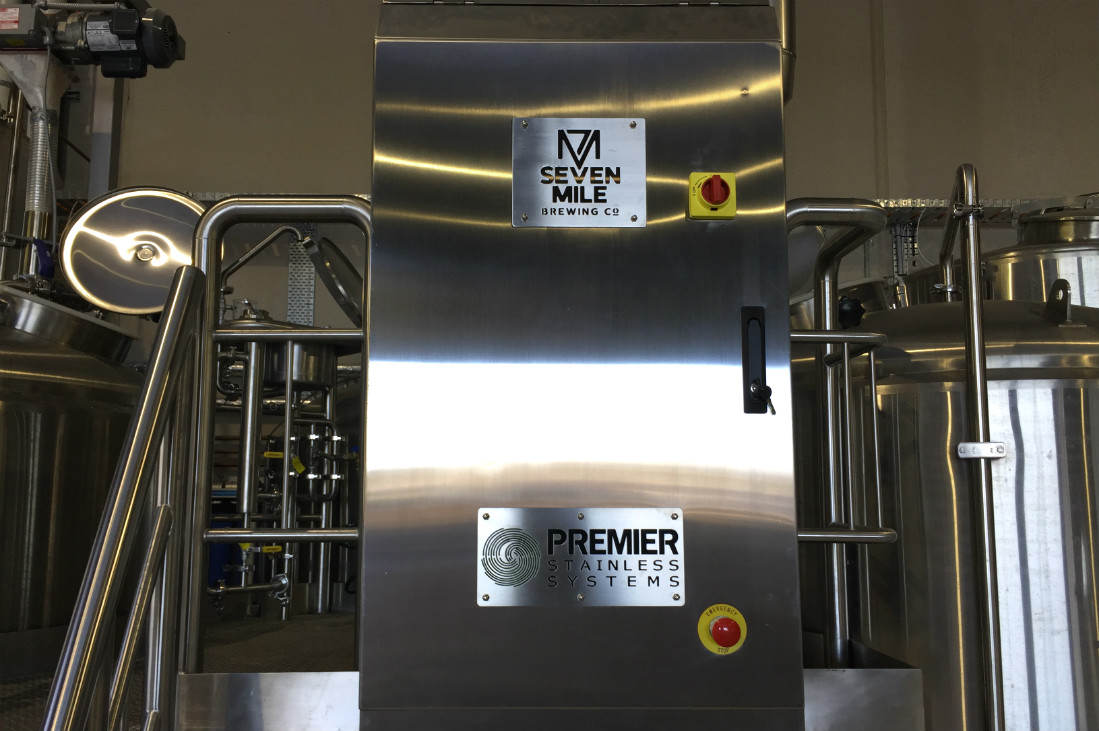
Growing pains of a new brand in a nascent craft market aside, both Wilsons are happy with the overall response from their community so far. “We’re quite capable of selling 20 or 30 kegs a week if we really pushed it, but we don’t have enough beer to do that yet,” says Matt.
“Everything is about creating a family business where we just craft the best beers we can make and hope that everyone loves it,” Lou says. “We’re confident that we’re doing a good enough job and being appreciated by the people that matter—our local community, who have been very supportive—and we’re just going to keep pushing ahead.”
Taking Flight
Ballina’s commercial airport handles domestic flights from a handful of regional carriers that includes Jetstar and Virgin Australia, with up to 500,000 passengers passing through every year. In a bid to better highlight its close proximity to neighboring Byron Bay—which attracts upwards of 2 million annual visitors—in 2005 the airport was renamed the Ballina Byron Gateway Airport. It’s located just off the Pacific Motorway in the Southern Cross Industrial Estate, home to companies dealing in things like power equipment, scaffolding services, and home flooring. And beer.
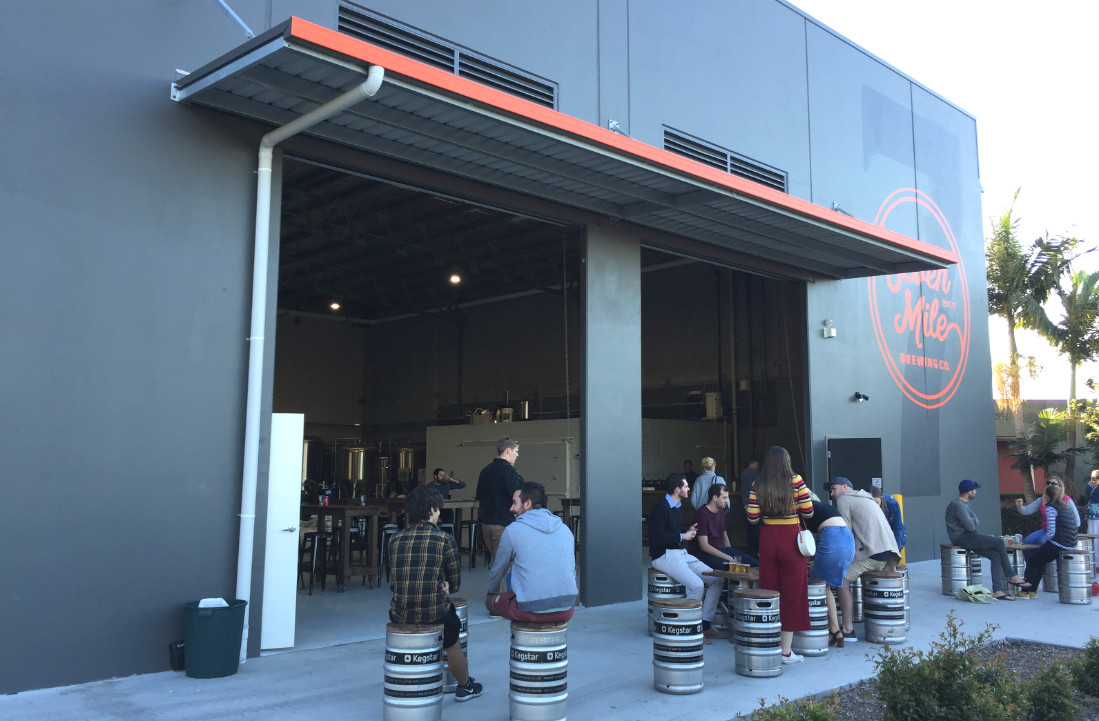
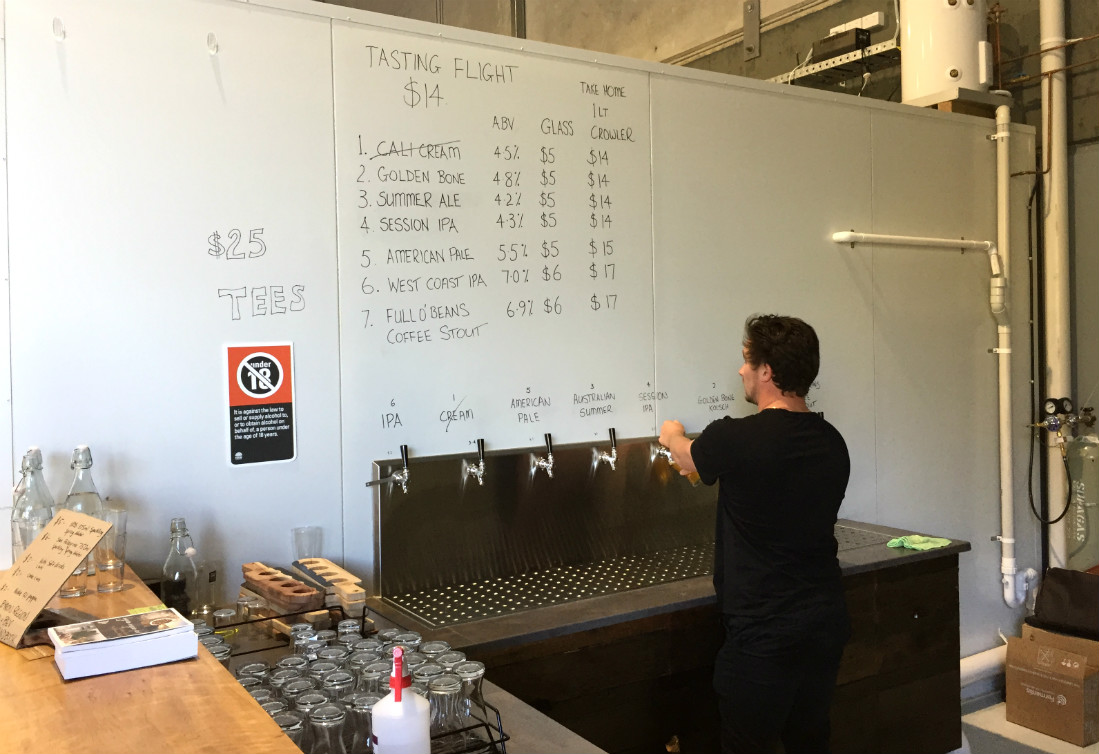
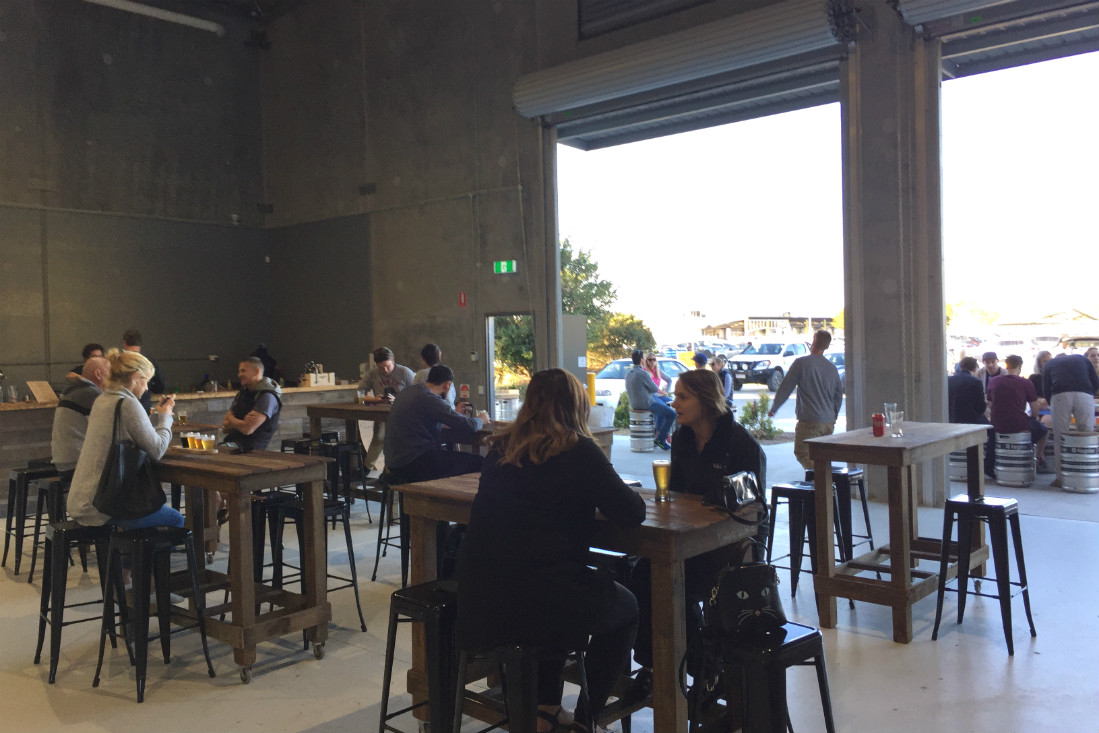
Housed in an old repurposed furniture warehouse, Seven Mile Brewing Co enjoys a prime spot at the very end of the estate, opposite the airport’s entrance. In a nifty location get, the brewery is indeed the first and last thing airport visitors see as they come and go, which essentially makes it the de facto airport bar from noon to 6pm, Wednesday to Sunday. “We found a developer that owned the block, talked to him about doing a purpose build, and size wise we have room to grow, but not to the point where we can’t maintain absolute quality,” Lou says. “We have no intention of leaving this building, and actually have a 15-year lease. We haven’t even started harvesting the airport traffic.”
Old Quarter Coffee Merchants, a roaster specializing in Southeast Asian beans, is another company just down the street from Seven Mile Brewing and, as an early brewery supporter, was a natural choice for a collaboration. Brewed with 15 kilos of cold-steeped Sumatran coffee beans from Old Quarter, seasonal Full o’ Beans is an incredibly light-bodied 6.9% stout that drinks and tastes like a cold brew. “I’m over the moon with how it turned out because it drinks like a long black,” Matt says. “I could have added more body, sweetness, and richness, but then it would be a really good stout with coffee, instead of just drinking like a coffee. You wouldn’t even know it’s a beer.”
This, now, is the type of endeavor that rouses Matt’s brewing loquacity. Contrast his description of Cali Cream as “just a beer” with this explanation of how Full o’ Beans came to be. “We pulled apart [Old Quarter’s] mixing bed, sprayed everything with isopropyl, got some brand-new buckets, then filled them with hot water to let them steam before spraying them out and sealing the lids because I was super paranoid about infections,” Matt says. “We roasted the beans hot, then they went straight into the buckets and were still hot when I chucked them in the tank.”
For the stout, which was the first dark beer he brewed on Seven Mile’s kit, Matt says he used a cooler mash temperature to help make the dark malts more fermentable since they have a naturally lower attenuation. In other words, he wanted to tamp down the malts’ inherent lean towards sweetness. The beans were around 70 to 80 degrees when he pitched them, dry-hop style, into the fermented stout.
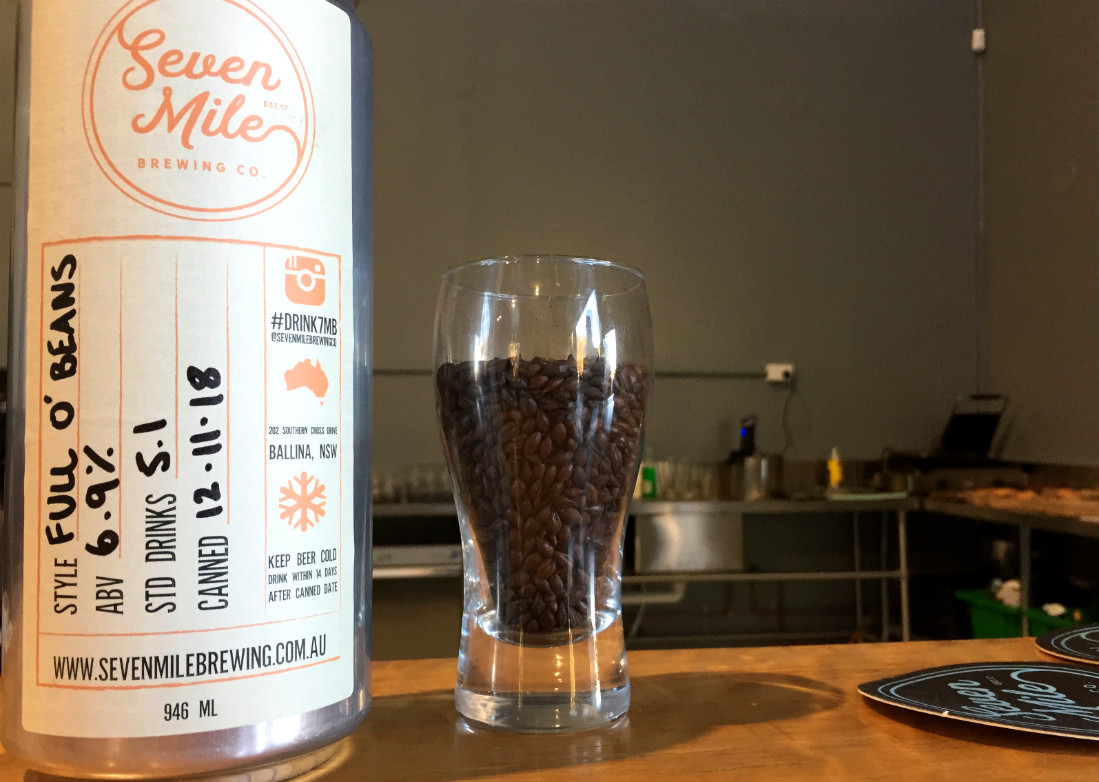
“I was surprised at how quick the coffee flavors started coming through. I chucked the beans in at about 9am, and then when I tried it at about 4pm was like ‘holy shit, there’s so much coffee already,’” he says. “I couldn’t sleep, so I came back at like 2am, tried it again, and saw that it was slowing down.” Matt began transferring the beer to kegs later that morning; in all the beans soaked for about 18 hours. All that labor and planning resulted in eight barrels of Full o’ Beans.
When that’s gone it’s gone for a while, unlike a certain other beer, for better or worse. “Since the cream ale ran out we’ve lost a lot of those people who were coming in the first few weeks,” Matt says. “They’ve all said bring it back and we’ll come back, so all right… we’re bringing it back.”
###
Seven Mile Brewing Company is located at 202 Southern Cross Drive in Ballina, NSW, Australia. +61 0421 841 373. Open Wednesday to Sunday from 12pm – 6pm.
This story was written to the sounds of Blue Note jazz classics.


